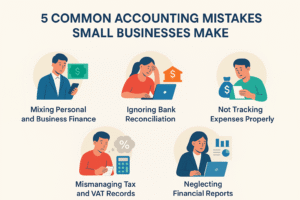9 Steps to starting a small business in Canada
Are you an aspiring entrepreneur with a fantastic business idea and looking to make it a reality in the Canadian market? Congratulations! Canada is a supportive environment for small businesses, providing a diverse customer base and a welcoming infrastructure. However, before you start, it is crucial to understand the key steps involved in starting a small business in Canada. In this blog post, we will guide you through the process to set you on the path to success.
Step 1: Research and Refine Your Business Idea
The first and most crucial step is to thoroughly research your business idea. Identify your target market, analyze your competition, and assess the viability of your product or service in Canada. Ask yourself some critical questions such as, “what problem does my business solve?”, “who is my target audience?” and “how does my offering stand out from competitors?” Refine your business idea based on the insights gained during your research, and ensure that it aligns with your passions and skills.
Step 2: Create a Solid Business Plan
A well-crafted business plan is the foundation of your small business. It outlines your company’s objectives, target market, marketing strategy, financial projections, and operational plan. A thorough business plan helps you stay focused and is crucial if you seek external funding or support.
Step 3: Choose the Right Business Structure
Selecting the appropriate business structure is vital as it affects your taxes, liability, and management. Common business structures in Canada include sole proprietorship, partnership, corporation, and cooperative. Consult with a business advisor or attorney to determine which structure best suits your needs.
Step 4: Register Your Business
Once you’ve chosen your business structure, you’ll need to register your business with the appropriate government authorities. The process varies by province and territory, but generally, you’ll need to register with the provincial or territorial government and obtain a business number from the Canada Revenue Agency (CRA) for tax purposes.
Step 5: Obtain Necessary Permits and Licenses
Depending on the nature of your business, you might need specific permits or licenses to operate legally. Research the federal, provincial, and municipal regulations to ensure you comply with all necessary requirements.
Step 6: Open a Business Bank Account and Secure Financing
Separate your personal and business finances by opening a dedicated business bank account. This will help you track your business transactions efficiently. Additionally, consider your financing options – you may choose to bootstrap your business, seek funding from investors, or apply for government grants and loans.
Step 7: Build Your Team
If your small business requires additional help to operate effectively, start building your team. Hire individuals who align with your company’s values and possess the skills necessary to contribute to its success.
Step 8: Develop a Marketing Strategy
A well-thought-out marketing strategy is essential to reach your target audience and generate sales. Utilize a mix of online and offline marketing channels, such as social media, email marketing, content marketing, and traditional advertising, to promote your business.
Step 9: Set Up Your Workspace
Whether you need a physical storefront, office space, or an online platform, ensure your workspace is conducive to your business operations.
Step 10: Stay Compliant and Evolve
As your business grows, it’s crucial to stay compliant with tax regulations, employment laws, and other legal requirements. Regularly review your business plan and adapt to changes in the market or industry.
Starting a small business in Canada requires dedication, hard work, and careful planning. Be prepared for challenges along the way, but remember that every obstacle is an opportunity for growth. Stay focused on your vision, keep your customers at the forefront, and never stop learning from your experiences. With determination and perseverance, your small business can thrive in the Canadian market. Good luck on your entrepreneurial journey!



